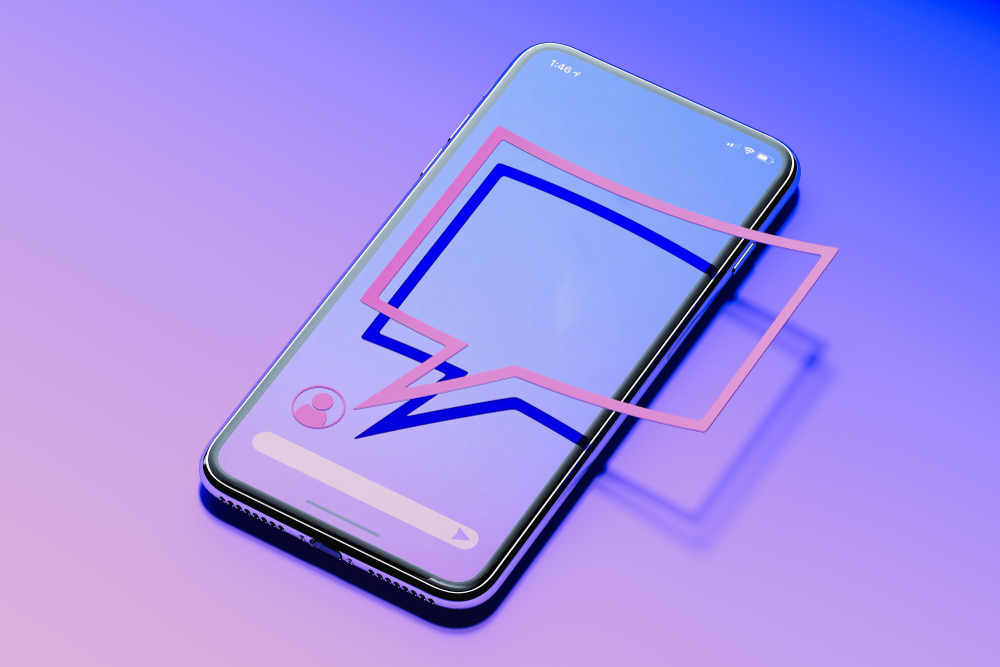I checked my phone. Nothing.
Then I checked it again. Nothing.
Finally, the wrong notification was there.
Great.
What was I doing?
My phone was training me. Or maybe I was doing it all myself.
By looking at notifications, I was getting used to expecting more. So I would look even when there were none. Heck, I wanted more!
Same with being able to google every useless question that came to mind.
I kept googling things I’d never remember, instead of creating timeless memories.
We love notifications because they make us feel needed. Like stuff is happening, and it’s happening NOW.
Our brain loves notifications because every time you complete a task -no matter how small- it gets rewarded with a spike of dopamine, the feel-good chemical.
They’re actually chemically addictive.
Now the choice is this: you can spend your day replying to messages, emails, calls, and all the likes, or you can switch off and focus on making real progress on what matters to you.
In the first case, you’ll feel good throughout the day, and awful at the end of the day.
In the second case, you’ll feel kinda bad throughout the day, and amazing at the end of the day and at the end of the week.
But you have to choose.
You can’t have the constant stream of interruptions and information and also want to never be distracted. It’s either or.
Here’s how to remove smartphone addiction.
Step one: get used to being away from your phone.
The idea of switching off your phone may make you feel terribly guilty.
“What if someone needs me?”
“What if they’re stuck because they need my input?”
It’s all good.
Remember that the human race did ok in the few hundred thousands of years before we were born — and they didn’t even have phones.
The best way to start putting your phone down is to start observing screen free Saturday mornings.
As you might expect, the rules are pretty simple: do not turn any screen on until 12 noon. No TV, no tablet, no laptop, no phone. Instead, sleep in, go for a walk or a run outside, read a book, have a conversation with a friend (make sure to agree on a time and a place the day before), meditate, just enjoy your day as it unfolds.
This will require a bit of discipline and planning, but it’s a great place to start. Remember, if you’ve forgotten something or have a last minute thing, let it go so you can experience the consequences: none.
Next, you can start integrating Amish Time into your day, and make sure you turn your phone off 30 minutes before going to bed. This will not only improve the quality of your sleep and your day, it will also train you to be able to switch off and reclaim your time.
Step two: reduce distractions.
Don’t resist distractions, eliminate them.
We are going to minimise notifications and distractions, so you can be present with whatever you’re doing. But remember: the most persistent notifications reside in your head, so give yourself at least two weeks to get used to the changes.
Block mobile data on certain apps.
Smartphones are different from laptops, because they’re every time, every where. Mobile data plays a big part in this, offering access to an infinity of distractions at any one time. Why enjoying your lunch when you can Google it instead? On iPhone, go into settings > mobile > and deactivate distracting apps you don’t need.
I have deactivated YouTube, Safari (browser), and a few other apps I don’t really need to access right now.
Eliminate infinity apps.
Some apps can give you unlimited, irrelevant content which is impossible to be up to date to. Which means you’ll forever be checking.
Personally, I have no Facebook app on my iPhone, and only use Facebook Groups and Messenger instead (with caution).
Reduce notifications.
This takes patience, but it’s worth it.
Look at your recent notifications, and check which ones you have been ignoring for a while: deactivate them in settings.
Next, go through all your notifications and be brutal. If you’re on iOS, you can decide how you want to receive notifications: you can choose whether you want it to play a sound, show a badge, pop up on your lock screen, or…all of the above.
It’s time consuming, but it will pay off every day.
Use Do Not Disturb wisely.
Most phones allow a Do Not Disturb function, which essentially mutes and hides notifications coming in. Use it as much as possible, especially when you’re working on your pomodoro burst.
No iPhone in bed.
Give it a rest. Literally. Mindlessly browsing the web in bed hurts your sleep, your relationships, and brings your daily worries into the most relaxing place.
Step three: set yourself free
Use a website and app blocker.
I use an app called Freedom, which allows me to set blocks on my phone, tablet, and laptop so I can’t access certain apps or websites at specific times. It takes all the distractions and temptations away, so you can focus on what matters.
It also breaks those bad behaviours like checking Instagram in bed or watching another YouTube video when all you should be doing is going to sleep.
I love to set a 2 hour block and write uninterrupted.
Delete emails.
Emails are not texts. They were never meant to be texts.
Delete them from your phone and reply however regularly you choose from your computer.
Emails have been off my phone for nearly two years now, but if you really can’t do without, at least turn those notifications off.
No browser.
Controversially, I also haven’t had a browser on my phone for over a year. Pure bliss (you can just deactivate it from the restrictions settings).
Whenever you absolutely need to search for something, you can use maps or…just ask someone else to google it for you. You’d be surprised how rarely that happens.
Pick and choose. Not everything will work for you, like some (like switching to a dumb phone) are not for me. So pick and choose: experiment, and see what works for your lifestyle and your priorities. Just make sure you communicate the changes, and you don’t fall into the trap of made up excuses.
Now, go turn some notifications off.
Originally published on Medium.
Follow us here and subscribe here for all the latest news on how you can keep Thriving.
Stay up to date or catch-up on all our podcasts with Arianna Huffington here.


